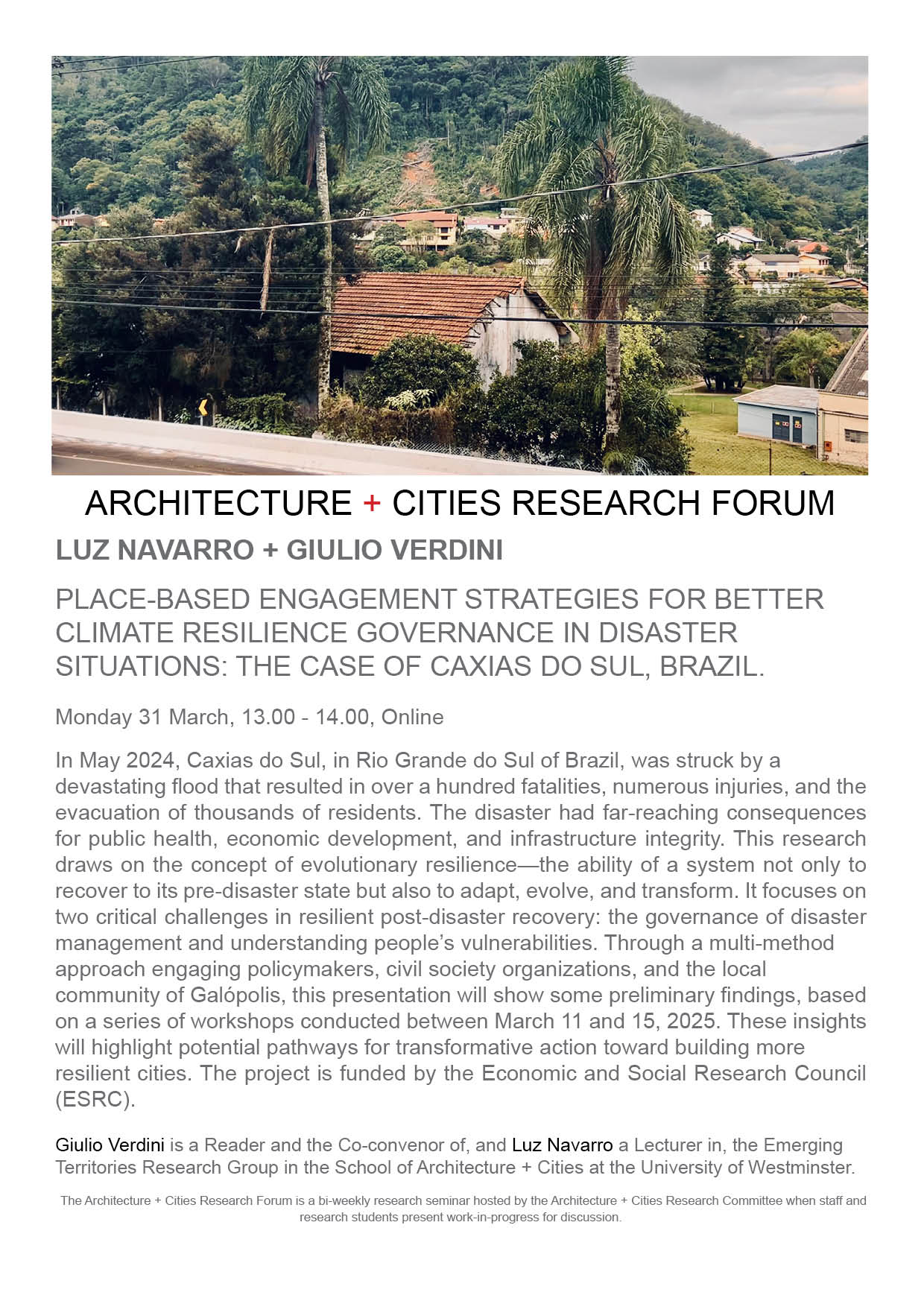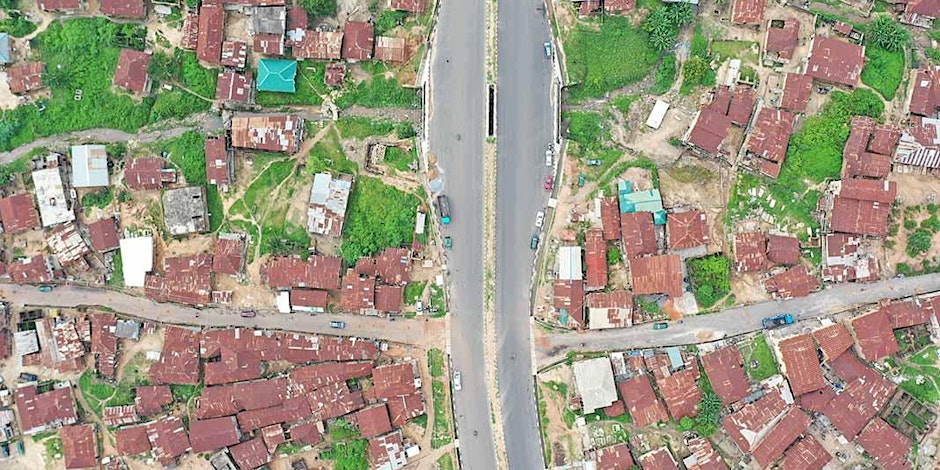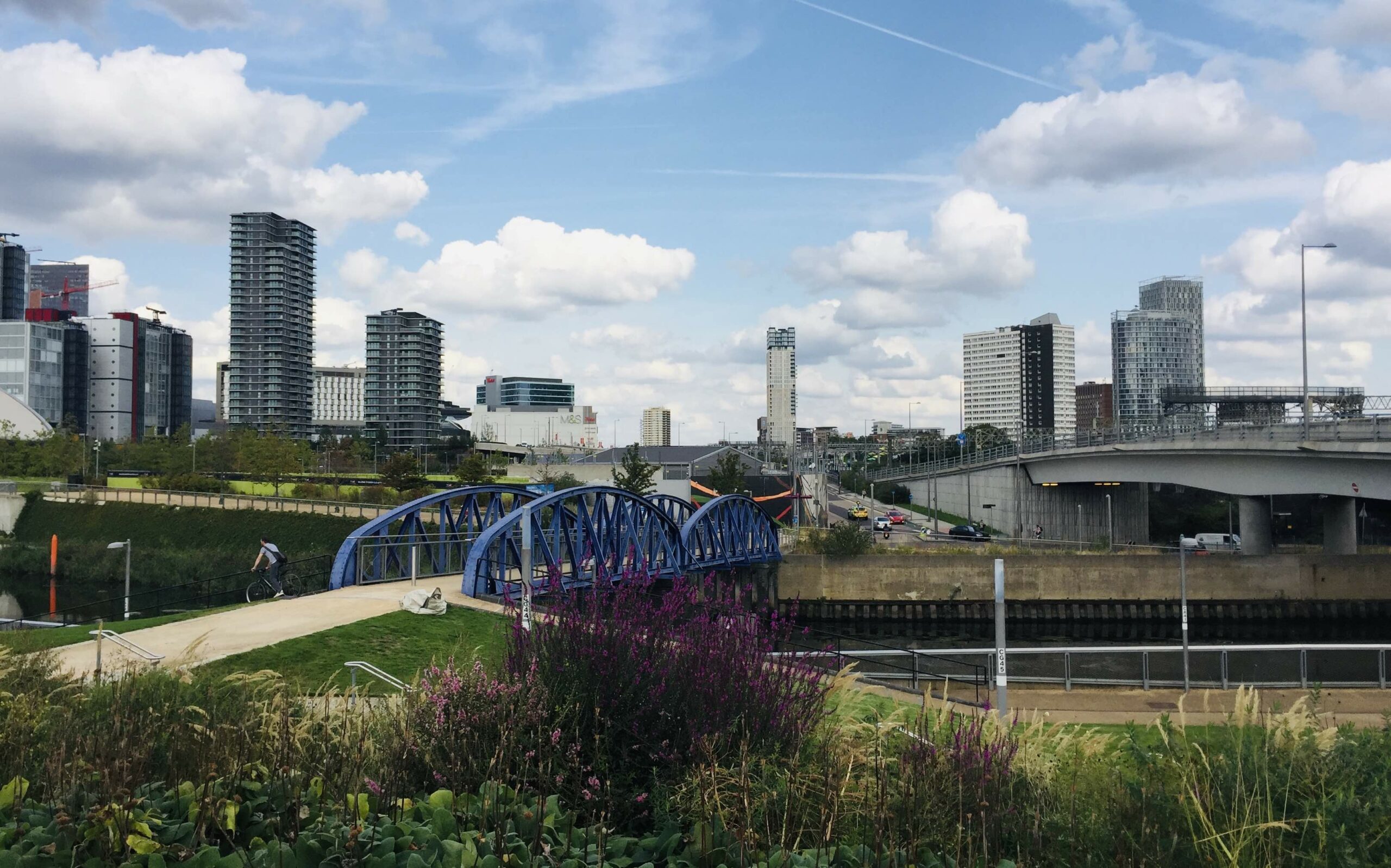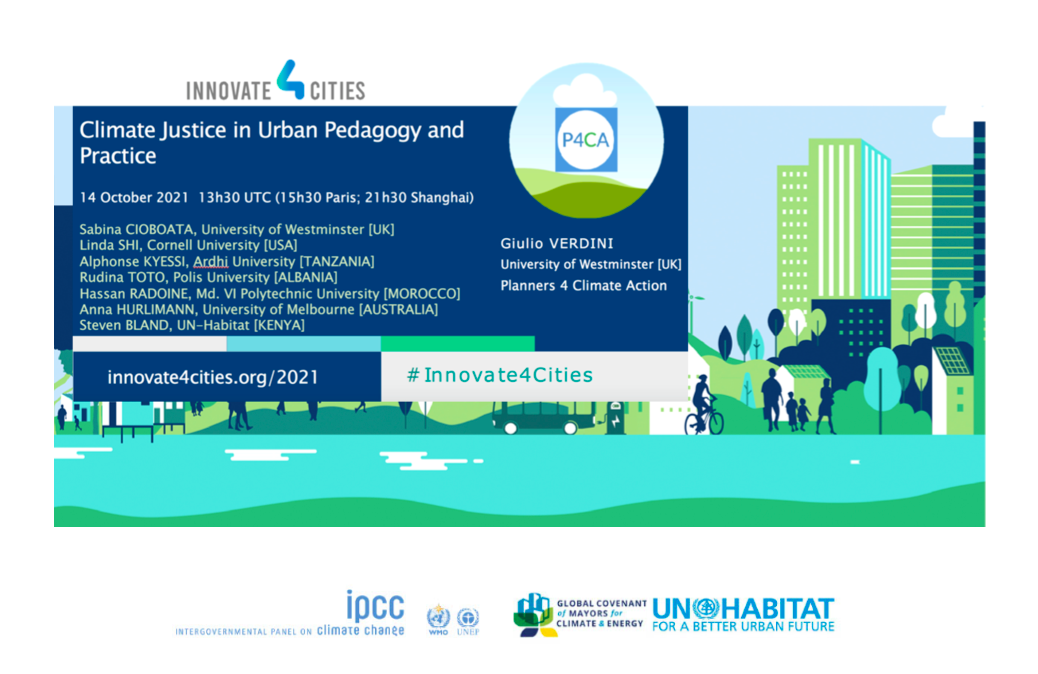When: Friday, 26th of April 2024, 10am – 5pm (BST)
Where: M416, Marylebone Campus, University of Westminster, 35 Marylebone Road, NW1 5LS
The Emerging Territories Research Group is hosting a one-day event to celebrate the Max Lock Centre (MLC) and its legacy, and to discuss the future perspectives of current international urban and sustainable development-related research undertaken at the School of Architecture and Cities of the University of Westminster.
In the morning, as a contribution to a discussion of innovative methodologies applied to international planning projects, the MLC team will trace the history of its key projects over the almost thirty years of activity. These include, among others, the master planning of the city of Kaduna in Nigeria, ongoing since the initial work undertaken post-independence in the 1960s, by architect-planner Max Lock and his partner and a former director of MLC, the late Dr Mike Theis. A roundtable with UoW alumni working in international planning and sustainable development, and urban design will follow.
In the afternoon, current multi-disciplinary research undertaken in Asia, Africa, and the Middle East will be briefly presented, and a final workshop on International Urban Dialogues will be organized to reflect on how to shape an open and inclusive global hub of international urban research, practice, and knowledge exchange. A research agenda will be launched, building on the legacy of the MLC and its original idea of ‘Planning by People’ and community participation.
The day will end with the opening of the MLC exhibition, a retrospective of Centre projects illustrating its methodology and historic work from the Max Lock Archive. This will include a repeat-showing of “Civic Diagnosis and City Design: Exploring the life and international influence of the pioneer British Architect-Planner Max Lock 1908-1988. RIBA sponsored exhibition first shown at the University in 1996
Register on Eventbrite
Research and development practice context
Scholars and practitioners working in international planning and development, have been confronted, in recent years, with an increasingly uneasy globalization of urban practices, based on abstract models and discourses of sustainable urbanization, generally lacking context-based understanding of local problems. Beyond the technical skills required by international experts, local understanding of governance issues, power relationships, complex actors networks, and the need of communities are crucial factors to enable projects to kick-off successfully and to ensure their long-term resilience.
However, these practices have been in some cases unsuitable to interpret the diversity and variety of local contexts, and therefore they have often generated extractive and unsustainable local solutions.
One of the underlying questions that will be raised is how to reconcile the international planning practice with emerging and alternative experiences of urbanism from the South? These experiences are tied to new narratives of inclusion and justice focused on the specificity of places, communities and their vulnerabilities, in the attempt to establish genuine dialogues between different world views and cultures.
These experiences have the potential to challenge existing power relationships, nurturing a more equal collaboration between the Global North and Global South. It is under these premises that the symposium has the ambition to define new forms of international urban dialogues, bringing together ideas and concrete proposals to generate an open and inclusive global hub of Research, Practice, and Knowledge Exchange, at the School of Architecture and Cities of the University of Westminster.
Programme
10:00 Introduction to the day
10:05 – 11:15
Max Lock Centre: Projects, Methodology, and Achievements
Tony Lloyd Jones, with Michael Mutter, Ripin Kalra, Fede Redin
11:15-11:45 Coffee Break
11:45-13:00
Working in International Planning and Development
A roundtable, face-to-face and online, with MAIPSD and MAUD Alumni, moderated by David Matthewson
Students: Abu Siddiki (London); Darshana Chauhan (London); Nahid Majid (London); Martyn Clark (Geneva), Richa Joshi (Dubai); Moshin Ganai (New Delhi? India), [and other invited online participants (?)]
13:00-14:00 Lunch Break
14:00-15:15
Current International Urban Research
Moderated by Krystallia Kamvasinou with short presentations from: Lindsay Bremner (India), Corinna Dean (Pakistan), David Matthewson (Rwanda), Ripin Kalra (Kazakhstan), Ben Stringer (India), Giulio Verdini (Morocco); Paolo Zaide (Philippines), John Zhang (China) and others.
15:15-16:30
Workshop: International Urban Dialogues
Introduced and facilitated by Giulio Verdini, based on the recent RIBA Horizon Scan 2034 on ‘Emerging Economies’. People in the room responding to key questions in breakout groups: Key challenges today in international urban research and practice? Main opportunities for the future? How we can shape an open, and inclusive global hub of international urban research, practice, and knowledge exchange at the UoW?
16:30 Conclusion and Opening of the MLC Exhibition
17:00 Wine Reception














![LATE Conversations #2, RURAL[scapes], Monday 12th March, 18:00-20:00, Robin Evans Room M416](http://www.openstudiowestminster.org/wp-content/uploads/2018/03/RURALscapes.jpg)